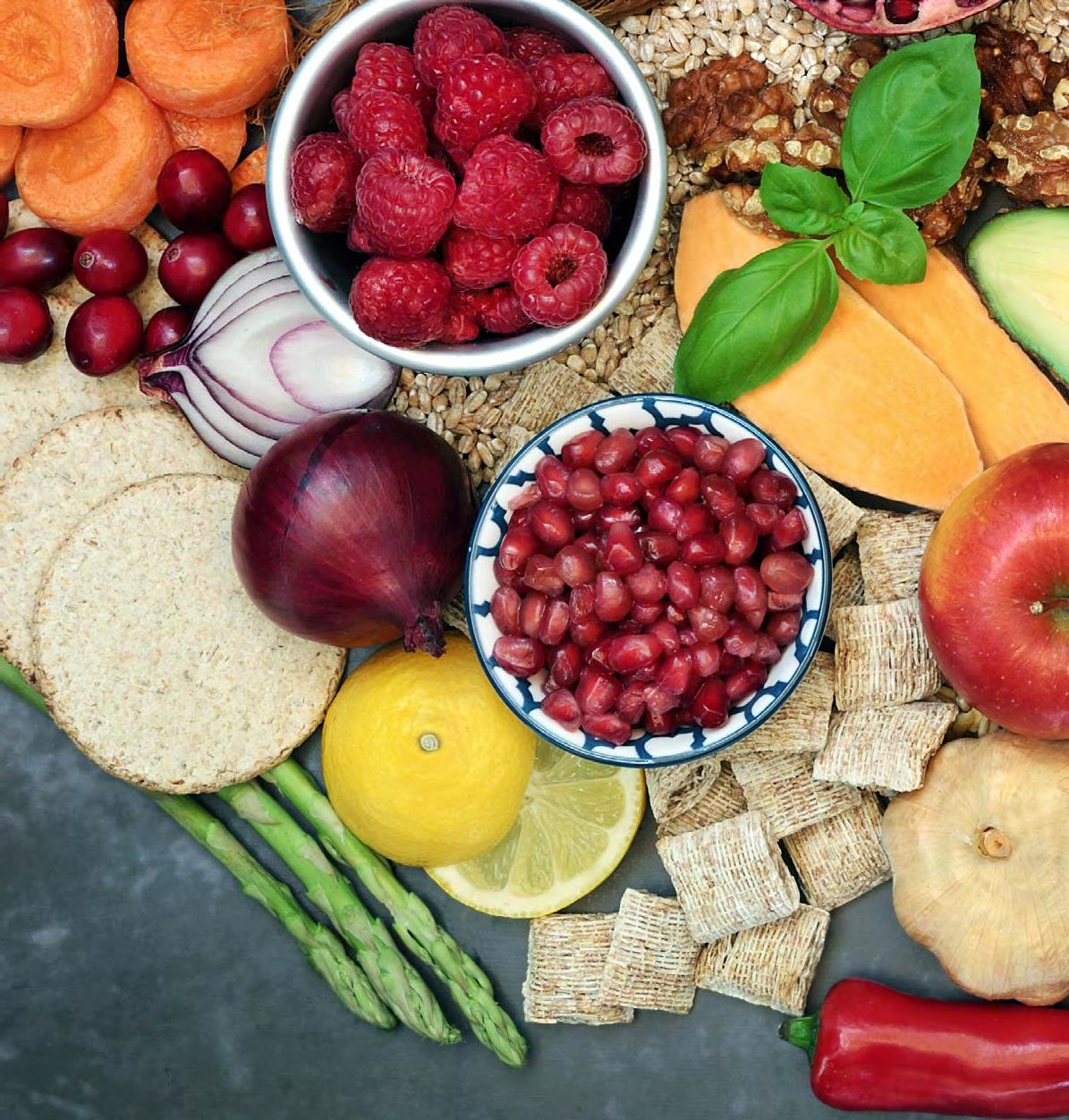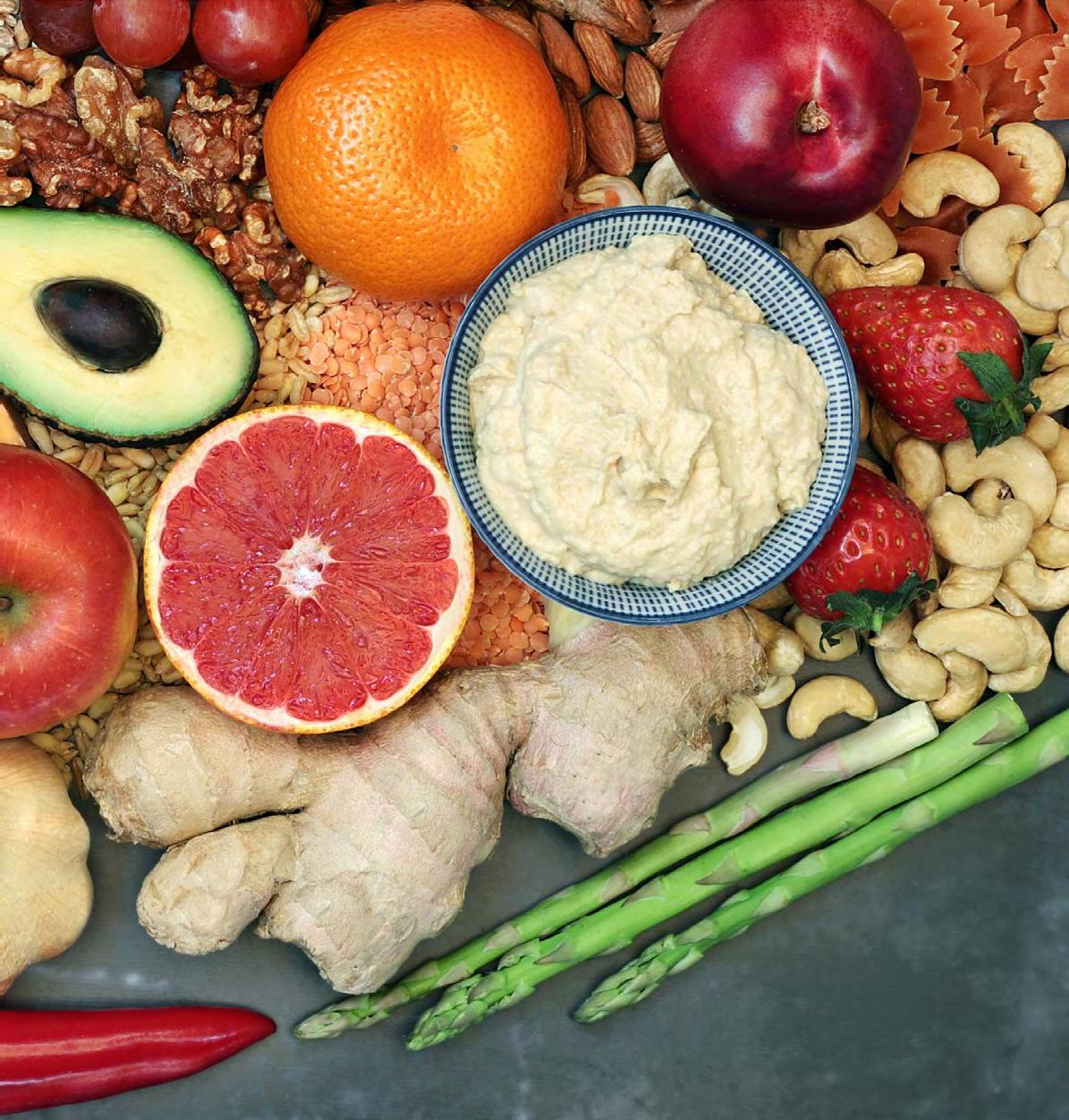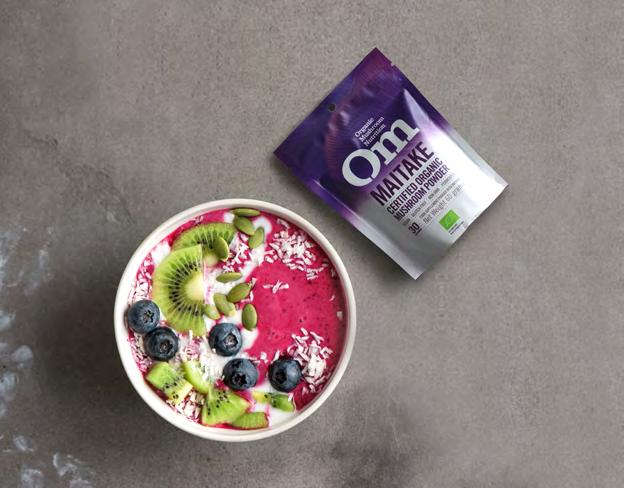
4 minute read
45 BLOOD SUGAR
BLOOD SUGAR BALANCE
Once reserved for special treats, sweet treats laden with sugar have become a daily go-to for many. In the UK, it’s estimated that children and teens are eating over twice as many free sugars as they should be. As a result of our sweet tooth, cases of type 2 diabetes are on the rise. There are over 2.7 million adults in the UK diagnosed with the condition and an estimated 750,000 more who are as yet undiagnosed or don’t know they have it. Balancing blood sugar is important for everybody for a variety of health reasons; stress management, diabetes prevention, cardiovascular health, mental clarity, weight management and more! If we eat a sugary meal, our pancreas works to release high levels of the hormone insulin, and this leads to too much glucose being stored away in the body (as fat) and for the body’s glucose levels to crash. This leads to the release of cortisol, the stress hormone, which sends your body into fight or flight, preventing weight loss and as a result you may crave more sugar, and/or eat anything you can get your hands on. You have entered a vicious circle. Thankfully, there are a number of lifestyle choices we can make to balance our blood sugar levels, including:
Advertisement
Eat 3 square meals a day, ideally at the same time each day Eat a palm-sized portion of quality protein at each meal Include low GI fruits in your diet, such as berries, pears and apples If you must eat higher GI fruits, such as bananas, include a handful of nuts or seeds Avoid refined and processed foods, opting for a wide and varied diet of whole foods If you can’t give up caffeine and alcohol, make sure you have these drinks with meals so as to minimise the effects on blood sugar levels Be active every day - even if just a brisk walk for half an hour Manage your stress to lower your body’s cortisol levels
T H E R E A R E A L S O A N U M B E R O F S U P P L E M E N T S Y O U C A N T A K E TO HELP SUPPORT YOUR BODY IN BALANCING BLOOD SUGAR:

PROBIOTICS Impaired gut flora is associated with diabetes. By taking probiotics your body’s ability to process carbohydrates may be improved, and it has been suggested that probiotics may reduce inflammation and prevent destruction of pancreatic cells. One review of seven studies found that taking probiotics decreased fasting blood sugar levels and hemoglobin A1C levels compared to a placebo[1].
For best results, take a probiotic with multiple probiotic strains, those thought to be beneficial include L. acidophilus, L. rhamnosus and B. bifidum. Try: Garden of Life Microbiome Formula Mood+
CINNAMON Cinnamon has long been known to balance blood sugar and is widely studied in the prevention and treatment of type-2 diabetes. Cinnamon supplements are either made from whole cinnamon powder or an extract. One study found that when people with prediabetes took 250mg cinnamon extract before eating breakfast and dinner, their fasting blood sugar levels had decreased by 8.4% after three months, compared to the placebo group[2]. Try: Nature’s Answer Cinnamon

AMERICAN GINSENG It is widely thought that American Ginseng increases your body’s secretion of insulin from the pancreas, and that it improves your body’s insulin response. One study showed that taking American Ginseng decreased both fasting and post-meal blood sugar levels in people with type-2 diabetes[3].
Additionally, when people with type 2 diabetes took 1 gram of American ginseng 40 minutes before breakfast, lunch and dinner for two months while maintaining their regular treatment, their fasting blood sugar decreased 10% compared to those on a placebo. Try: Nature’s Answer Ginseng
VITAMIN D Vitamin D deficiency is a potential risk factor for type-2 diabetes. Vitamin D is thought to improve the function of pancreatic cells responsible for making insulin in the body, and also increase your body’s insulin response. One study found that after just two months of vitamin D supplementation - 4,500iu daily - subjects had improved fasting blood sugar and hemoglobin A1C levels[4]. Try: Garden of Life Vegan D3 Spray
MAGNESIUM Magnesium is needed by the body for optimum insulin secretion as well as for insulin to work properly within the cells. In one review of 12 studies, it was observed in eight of the studies that magnesium supplementation helped reduce fasting blood sugar levels in both normal patients and those with type-2 diabetes when compared to a placebo group[5]. Try: Nature’s Answer Marine-Based Magnesium

MAITAKE Whilst human studies are limited, early research suggests that maitake may help stabilise blood sugars and negate the ill effects associated with high blood sugar levels[6,7]. Try: Om Maitake Mushroom
References [1] https://www.ncbi.nlm.nih.gov/pubmed/26987497 [2] https://www.ncbi.nlm.nih.gov/pubmed/22953038 [3] https://www.ncbi.nlm.nih.gov/pubmed/29478187 [4] https://www.ncbi.nlm.nih.gov/pubmed/26391639 [5] https://www.ncbi.nlm.nih.gov/pubmed/28526383 [6] https://www.ncbi.nlm.nih.gov/pubmed/11349892 [7] https://www.ncbi.nlm.nih.gov/pubmed/7820117










